Mezcals, tequilas and the whole agave category are now the big success story the spirits industry is collectively falling over itself to cash in on. But whilst it might be hip and hugely popular, it also makes it an extremely difficult to category to get into, now that every major spirits company in the world wants to have its slice of the agave pie.
But the numbers don’t lie. Tequila is now the second biggest spirit in the US with the total agave market now valued at $14.7 billion and projected to reach $25bn by 2030m (Research and Markets). Whilst tequila dominates the category, the discerning agave drinker is turning increasingly to more subtle and diverse flavoured mezcals, which are projected to see similar growth increasing from a market worth $1.1bn (2024) to $1.85bn by 2030.
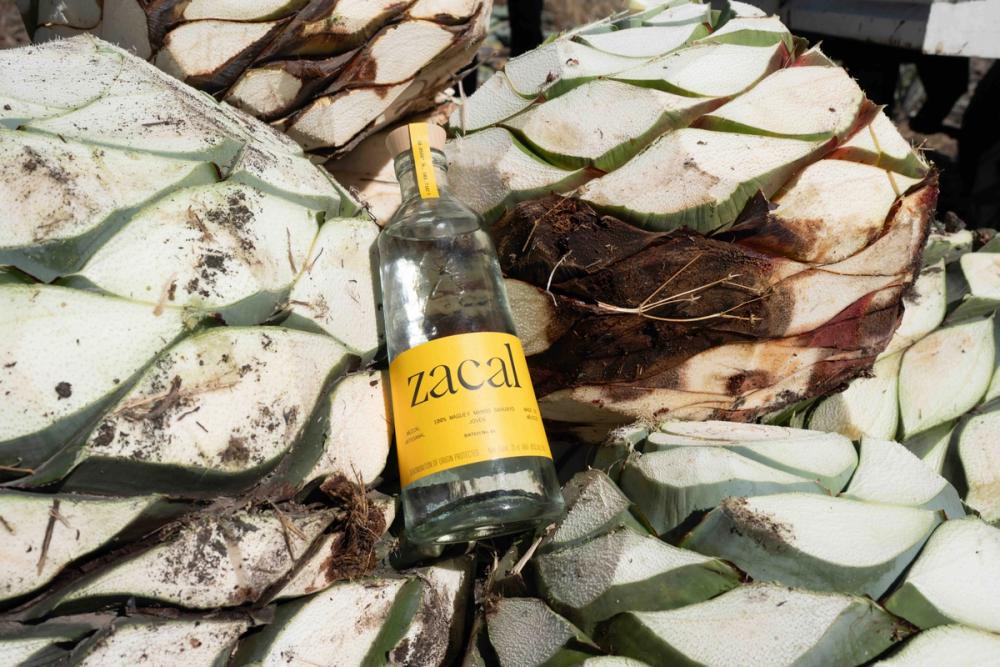
The team behind Zacal wanted to make a mezcal that was true to the artisan traditions of the mezcaleros that work the agave plants that can take over 15 years to mature
It is not just the potential, however, of the mezcal category that captured the attention and imagination of our former Bath University mates. It was the fact so many of the mezcals in the market taste the same, with their heavy smoky, tobacco overtones, in the same way so many tequilas, in what has become an increasingly bloated category, have become equally ubiquitous, with big volume brands pumping out ever more tequila into the market.
But what if they could bring a genuinely hand crafted, artisan brand that, crucially, could be sourced and made in an area of Mexico it does not make financial sense for the big brands to go to?
Off the beaten track
That was the kernel of an idea that came to them when going on a fact-finding drinking session that took them to London’s award-winning Hacha bar, and temple of all things agave, owned by Deano Moncrieffe.
It was there, thanks to talking to the staff, they discovered that not only do 90% of the mezcals in the market all came from one place - the Mexican state of Oaxaca - but that almost every one is made in the espadín style famous for its smoky flavours that are quicker to make and bring to the market.
“Their advice was if you are going to do this then go elsewhere, look elsewhere, go off the beaten track, go and find a place and agave that people have not heard of and have probably never tried. That’s the route to go down,” says Phil Clayton. “We thought that sounds like a great idea. Let’s just do something that no-one else has done. That was more than three and a half years ago.”
Andrew Maidment says the appeal of mezcal is it has so many affiliations with wine, where the quality and difference in the mezcal all comes from the actual agave plant and the soils and climate where it is grown. Similar to the vines, grapes and terroir in wine.
“An agave plant can take 15 years to grow. You get the complexity from the plant and the terroir. That’s what gives you the specific taste,” he says.
It’s why they have called their overall company Terroir Spirits and the tagline for their Zacal brand is “the spirit less ordinary”.
To find the right agave plants for what was to become Zacal took some time and a lot of traveling around the various mezcal-producing regions.
“We went extremely off the beaten track,” says Maidment in order to pull together a number of different liquids they could bring back to the UK to test and trial.
From that initial shortlist they picked out the mezcal from Milton Ochoa, a mezalero from the state of Michoacán. A region of Mexico, they were soon to discover, is known as “the soul of Mexico” with its diverse indigenous people, natural butterfly reserve, the Paricutín Volcano, one of the Seven Natural Wonders of the World, and the largest producer of avocado in the world.
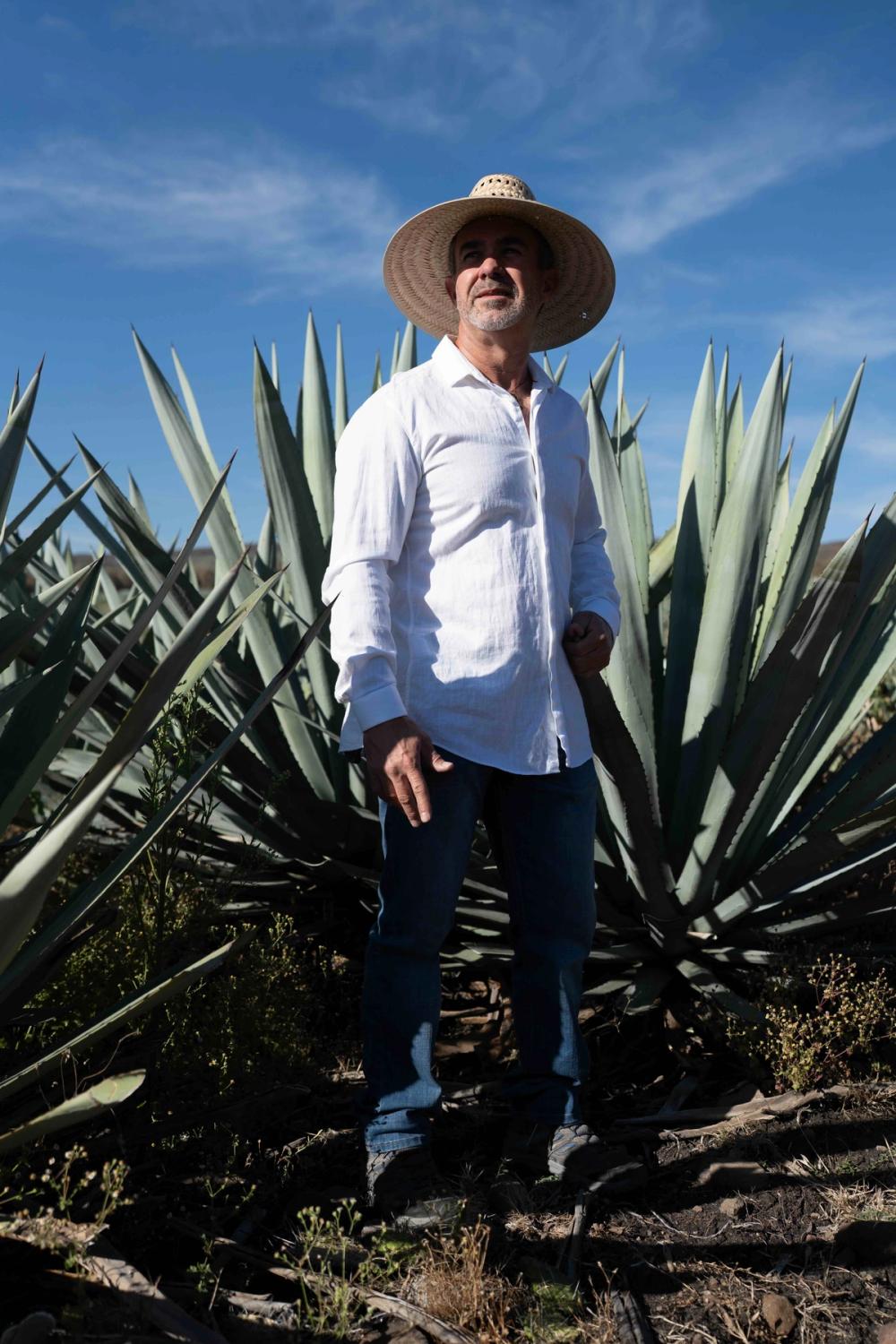
Milton Romona Choa Corona is the mezcalero behind the Zacal brand and so fundamental to its success that he is a shareholder in the business
“Milton is a real character. He embodies this ‘spirit less ordinary’. He had never exported before, but he was very keen and has ended up being a joint owner of the business we have in Mexico,” explains Maidment. “There’s a long road we can go on with him.”
Last chance saloon
Clayton admits by the time they met Ochoa they were beginning to worry they were not going to be able to find the right partner to work with. But it has all just clicked into place.
“We were in last chance saloon when we met him. We were in deepest, darkest Mexico and we met a guy whose full name is Milton Romona Choa Corona. In fact the reason why one of our signature serves has Corona in it is because of his name,” he says.
“He felt like the older brother that none of us had ever had. He is so mischievous, but also so unbelievably passionate about what he is doing.”
Also as one of the major agave growers in the state, with over 100,000 plants, he was suddenly faced with these wide eyed English guys wanting to work with him to make his own commercial mezcal brand for the first time. Which for one of the few growers in the area that has remained true to making mezcal, which he was only selling locally, and not totally giving in to the incentives to switch and put all his plants into making tequila, it was like a dream come true.
“I also think he thought we were mad at first,” says Clayton.
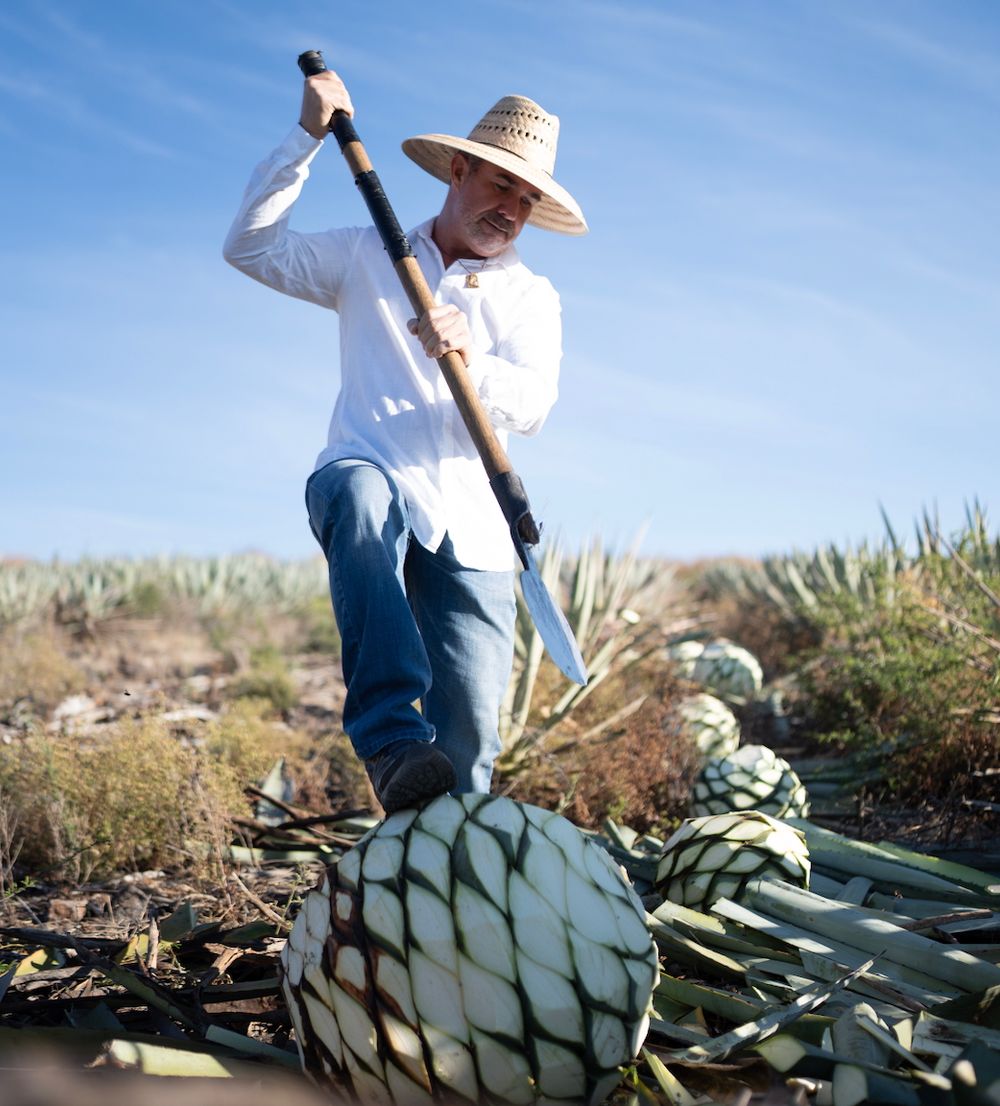
Zacal is an opportunity for mezcalero Milton Ochoa to make a commercial mezcal of his own for the first time
But as soon as he realised they were not coming to Mexico to do what seemingly every other brand owner wants to do and just go to the big main bottlers and distillers, but wanted to make mezcal in the most authentic and artisan way possible then he was all in, says Maidment.
“When he realised we did not want to do that and were serious, he ended up running around to find us crazy glass producers and mayan walnut wood for our stoppers.”
“His first love is mezcal,” adds Clayton. “That’s what he got taught to make as a little kid by his grandfather and then his father. He saw us an opportunity to bring that to the world and to actually make something commercially viable and not just have to grow, and cook and sell his seeds to Diageo.”
Like nothing else
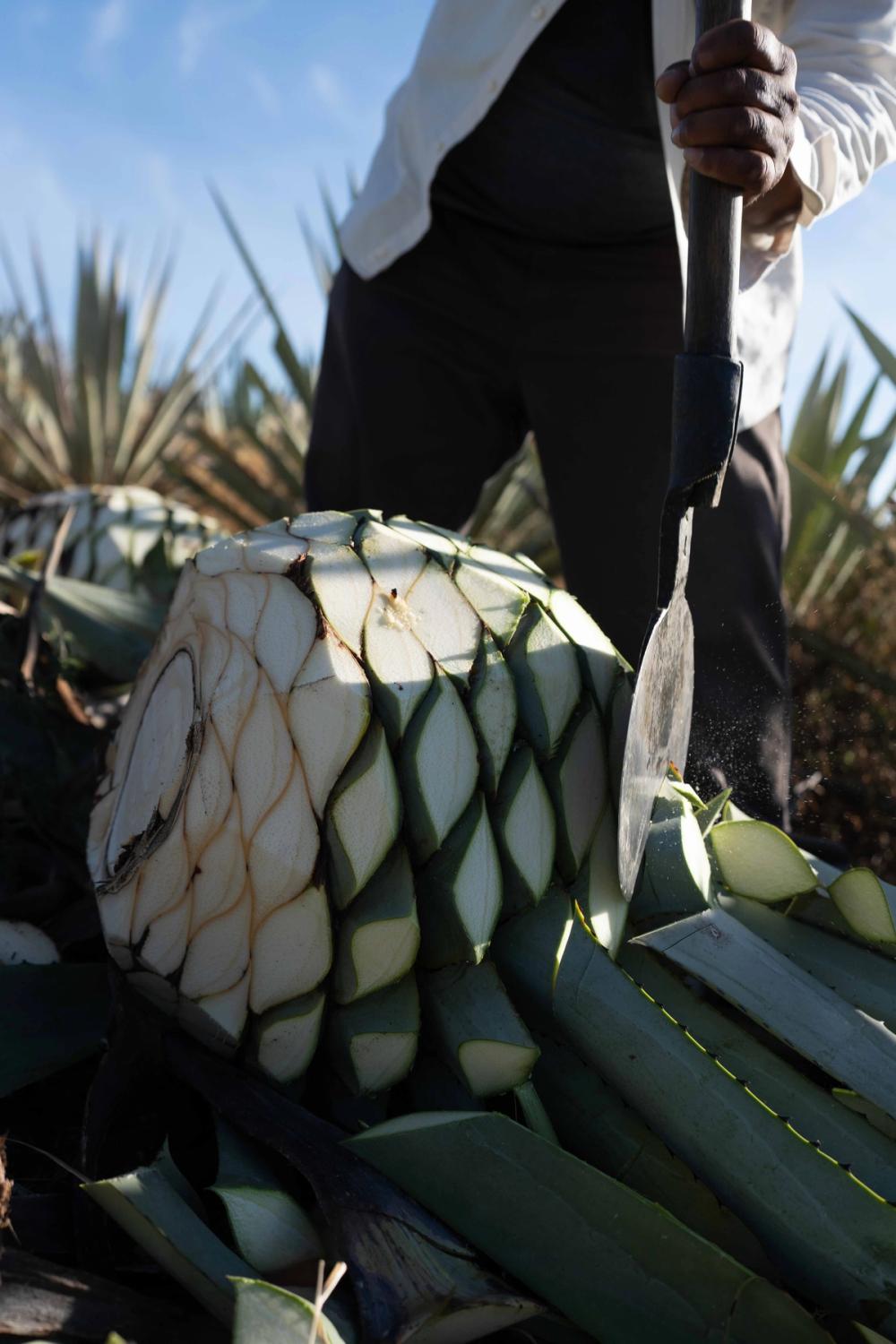
Zacal is made from the agave plants in the Michoacán region of Mexico that has unique terroirs and climate that are key to the agave plants that can be grown there and the mezcals that can be made
It was also a chance to use endemic plants - or in their case the Manso Sahuayo plant which Clayton describes as the “long lost mutated cousin” of the agave plants being used elsewhere to make tequila and mezcal. Because it is grown high up at altitude and in volcanic soils it grows more slowly and develops a more complex flavour as a result.
“That for us was quite exciting. So not only does this plant produce a lot of sugar, but it produces a very different flavour to anything that anyone really ever tries outside of this place.”
It was, though, quite the jump to go all in with Ochoa and his plants and these very different tasting mezcals.
“It was intriguing and we were learning at the same time,” says Maidment. “We became obsessed with smelling it. It’s not like anything we had smelt before.”
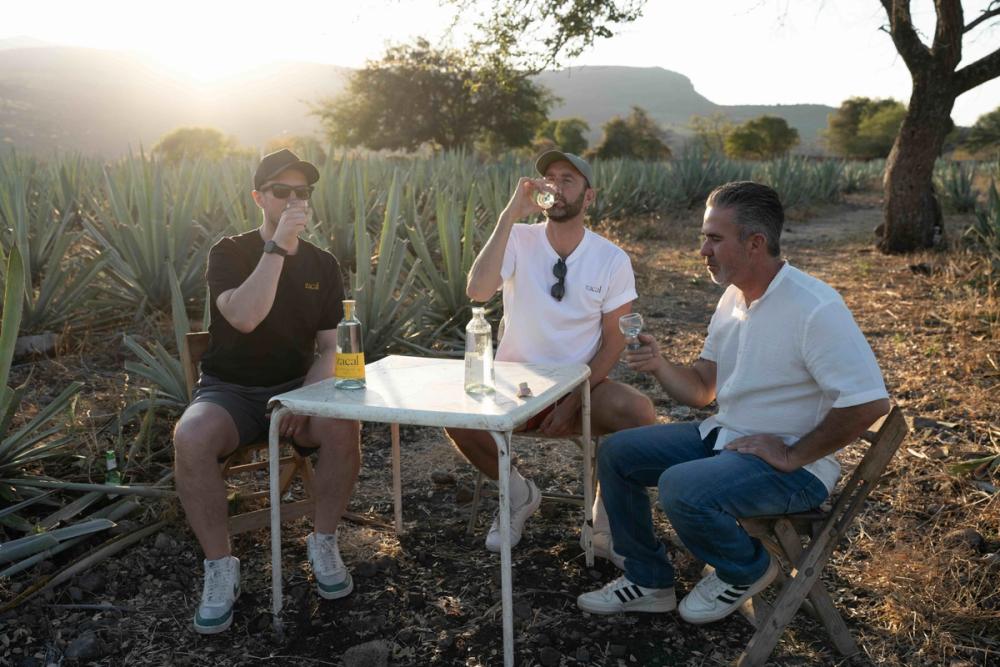
Zacal co-founder Phil Clayton and Ian McCaig with Milton Ochoa tasting the latest batch of Zacal
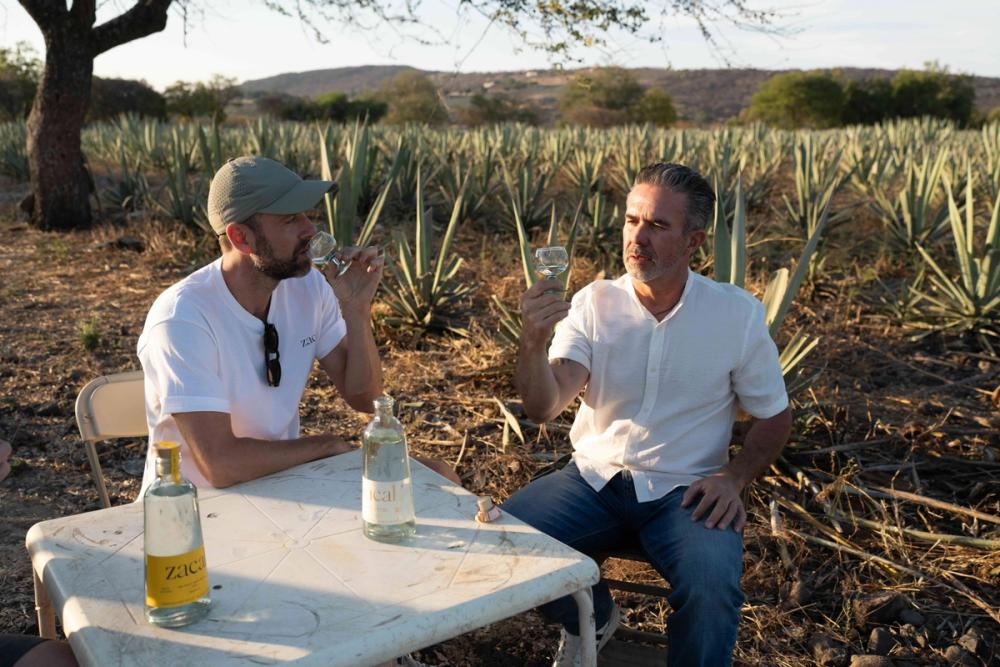
The artisanal production process uses an intriguing technique involving a small chimney to draw away the smoke, reducing the characteristic smokiness of many mezcals and amplifying the other flavours.
Clayton says they could not be happier both with Ochoa, but the fact their agave comes from Michoacán.
“It’s great to be in this undiscovered area for mezcal, where very few people have tried mezcal from there,” he says. It also happens to have the DO for Mexico’s three most important spirits: mezcal; tequila; and charanda (Mexican rum).
“It’s ended up being one of those amazing sort of happy circumstances. We didn’t realise it has all these riches when we first started looking and we just loved the fact it was different and it has this really rich culture and history. We love the fact it is known as the rebel state and has this very rich history of anti-establishmentarianism. They like to do things their own way there…and Milton definitely personifies that.”
Leap of faith
They have clearly made a lot of progress with Zacal, even if it has taken longer than they anticipated, but it was still quite the leap of faith - and friendship - to actually want to professionally work together on what is such a high risk product.
Maidment says they have always known they had the collective skills that make them quite a formidable group. Even at university, where they all did the same business degree, they worked on a final year project together and ending up winning a prize put up by Accenture. A move that saw Maidment start his career there.
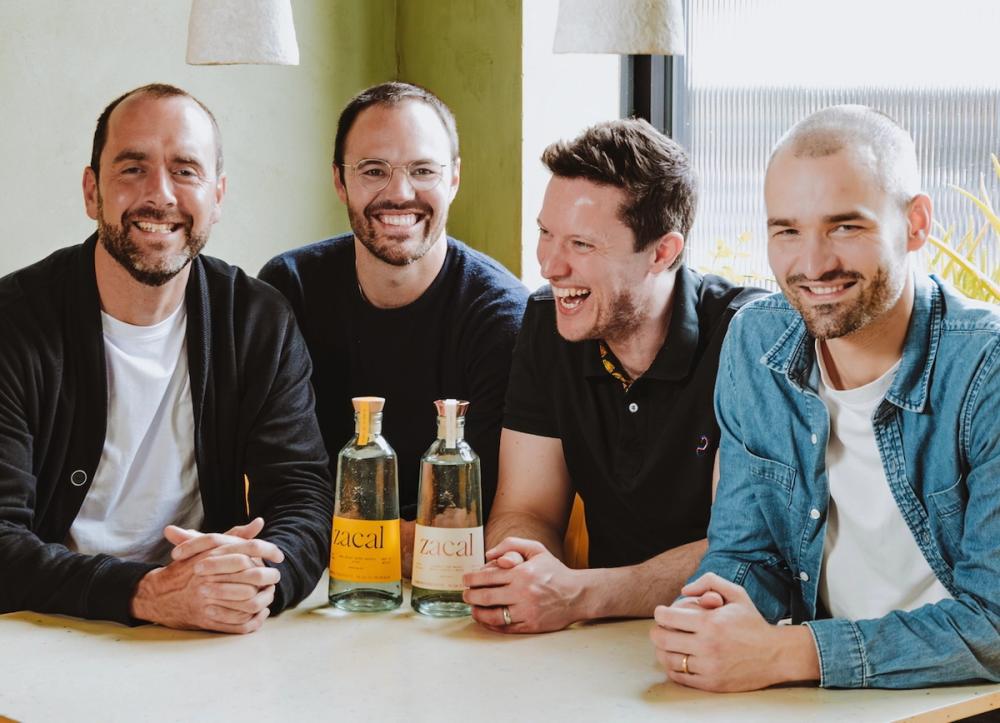
From old university mates to co-founders of Zacal. Left to right: Ian McCaig, Andrew Maidment, Phil Clayton and Christian Osborne
They have each gone on to forge highly successful careers: Clayton was one of the first Facebook employees in the UK and just left Meta after nearly 15 years with the group; fellow co-founder, Ian McCaig and Maidment were equally one of the first to join Google in the UK, with McCaig going on to help co-found a series of start ups including Qubit and most recently the fitness app FiiT; with Maidment moving into wine heading up Wines of Argentina in UK, Europe and Asia and now supplies wine to luxury yachts; and the fourth co-founer, Christian Osborne, a digital, marketing search analyst with Datorama and founder of Front Foot.
“We know each other inside out and we know when push comes to shove we can pull it out of the hat,” says Maidment.
Clayton admits he did not actually foresee a time when the four of them could actually work together. But thanks to his career at Meta he is now in a position to take time away from the corporate world and dedicate his time to building the Zacal brand as its chief executive.
It was during the Covid lockdown when they each had the time to start talking properly to each other again about potential projects and ideas.
“It was on one of those calls when Ian said: ‘This is now. If we are going to do something then this is now. We have got the brain capacity and the spare time.’ So when a lot of people were taking up knitting and doing courses, we thought we’ll launch a spirits brand because it can’t be that hard can it?”
Between them, he says, they got to mezcal “pretty quickly”.“We all loved it. We also like gin, whisky and tequila, but we looked at mezcal as being one of those things that still felt undiscovered.”
He adds: “Very few people are really, from our perspective, doing a particularly good job of it and there just weren’t that many interesting brands around when we first kicked this off. Nobody was lifting the lid and making a drink that was a bit more accessible. If it was in a shop, or bar, at all, it was hidden at the back.”
Luxury of time
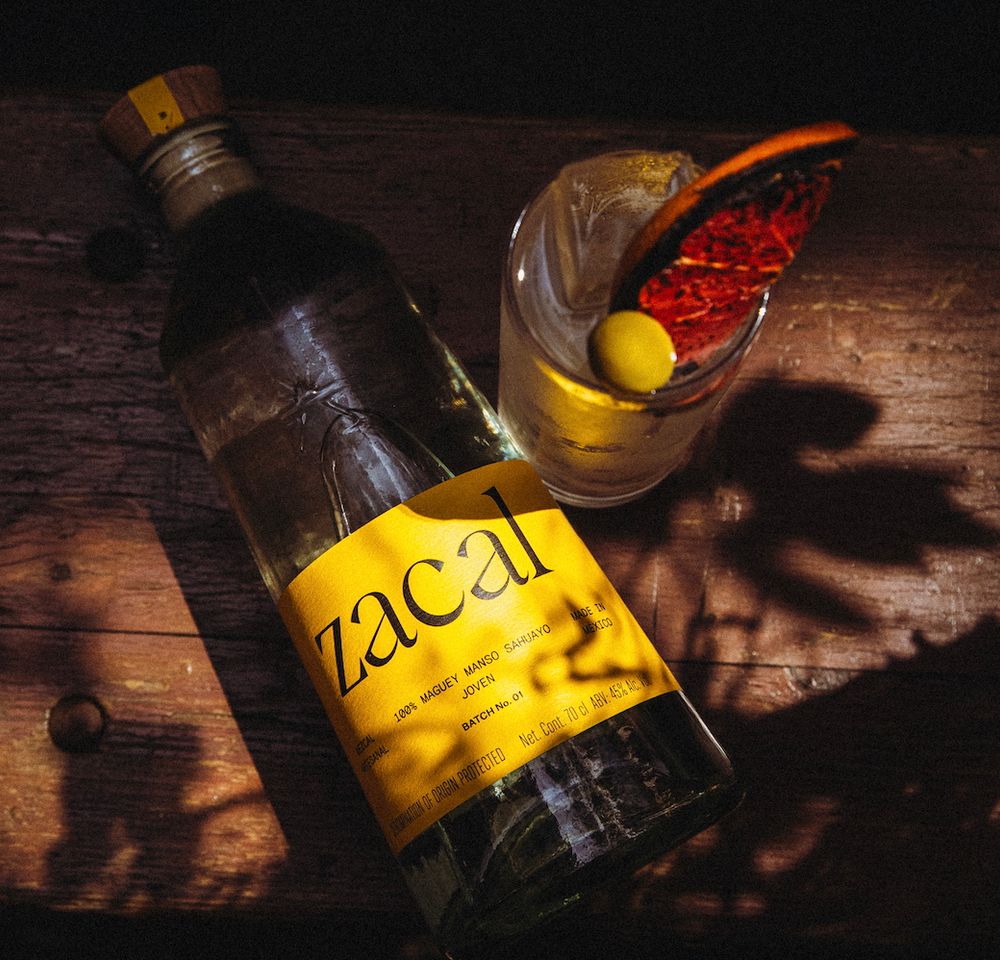
The team behind Zacal have spent their time to make as an authentic and sustainable product as they can
The fact they have taken their time to get all aspects of the band right has put them in a strong position to bring it to market, says Maidment. The registration for the mezcal itself took over a year.
They have all been happy to be patient and painstaking in the development process. After all it has taken them 20 plus years to get to this point.
“We can afford to do this exactly the way we want to do it and not cut corners,” says Clayton. “It has taught us the value in just not rushing and being patient which was hard having come from technology backgrounds where everything could be made overnight. This is the absolute opposite of that. You have to take your time. It has to be excellent from the start. You are also working with local people, and going on a journey with them and making them part of what you are doing.”
He adds: “All of those are ironically luxuries of being four mates working together. It’s not something a big brand would ever be able to do because they just don’t have the luxury of that time.”
They could have made life easier for themselves by falling into what they see as the trap of the majority of tequila and mezcal brands and use all the centralised suppliers for glass, labels and bottle tops. But key to the Zacal brand is its sustainability credentials and the team were determined to make the bottle, and brand as authentically and sustainably as they could.
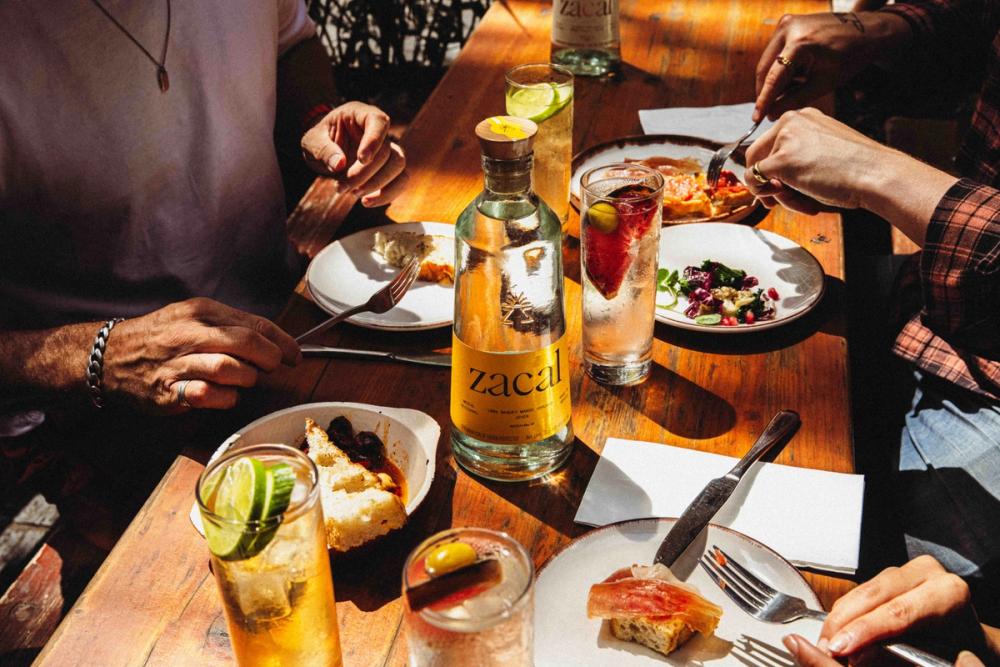
Zacal is a style of mezcal that has been made to enjoy with food
So much so that everything it can, be it the bottles, the lids, the labels, is produced within 90 minutes of where the mezcal is being made.
“That was a conscious decision because we want this to be genuinely artisanal through everything we do. No corners cut. Everything had to be the best we could make it through the local artisans,” says Clayton. “It’s caused us untold amounts of pain and it’s been an absolute nightmare getting a product here as a result of it. It’s been horrendous, but it’s produced something that we are immensely proud of.”
So rather than go for an off the shelf bottle it has created its own, working with an artisanal glass producer in Guadalajara. The bottle also includes a bespoke copper lid, working with a copper jeweller in the same village in Michoacán, which is as well known for its copper as it is its agave plants.
“We had the time and we have used that time to make things the right way,” adds Maidment.
The result is a recycled glass bottle that stands out as very different to anything else on shelf - even with a punt - or “thumb well” - in the bottom of the bottle to make it easier for bartenders to hold “that took months to sort out”. A bottle shape based on the conical Paricutín Volcano in the region. A bottle that looks premium, but artisanal, says Clayton.
“One of the beautiful unintended consequences of using recycled glass is that you get this dappling effect on the bottle that you just wouldn’t get otherwise. It adds a beautiful look and texture to it. It just feels beautiful to hold as a result.”
It is also their small way of offering an alternative to the mass produced tequila and mezcal market which is putting huge pressures on the biodiversity and eco system around mass agave plant plantations and “falling into the monoculture trap,” says Clayton.
“You are seeing that horrendously with tequila, particularly in Jalisco, where plants are becoming genetically resilient and robust and maturing far quicker than they were meant to,” he adds which has a knock-on effect to the wider biodiversity of the region.
“Thanks god we’re not adding to the problem,” he adds.
Award wining breakthrough
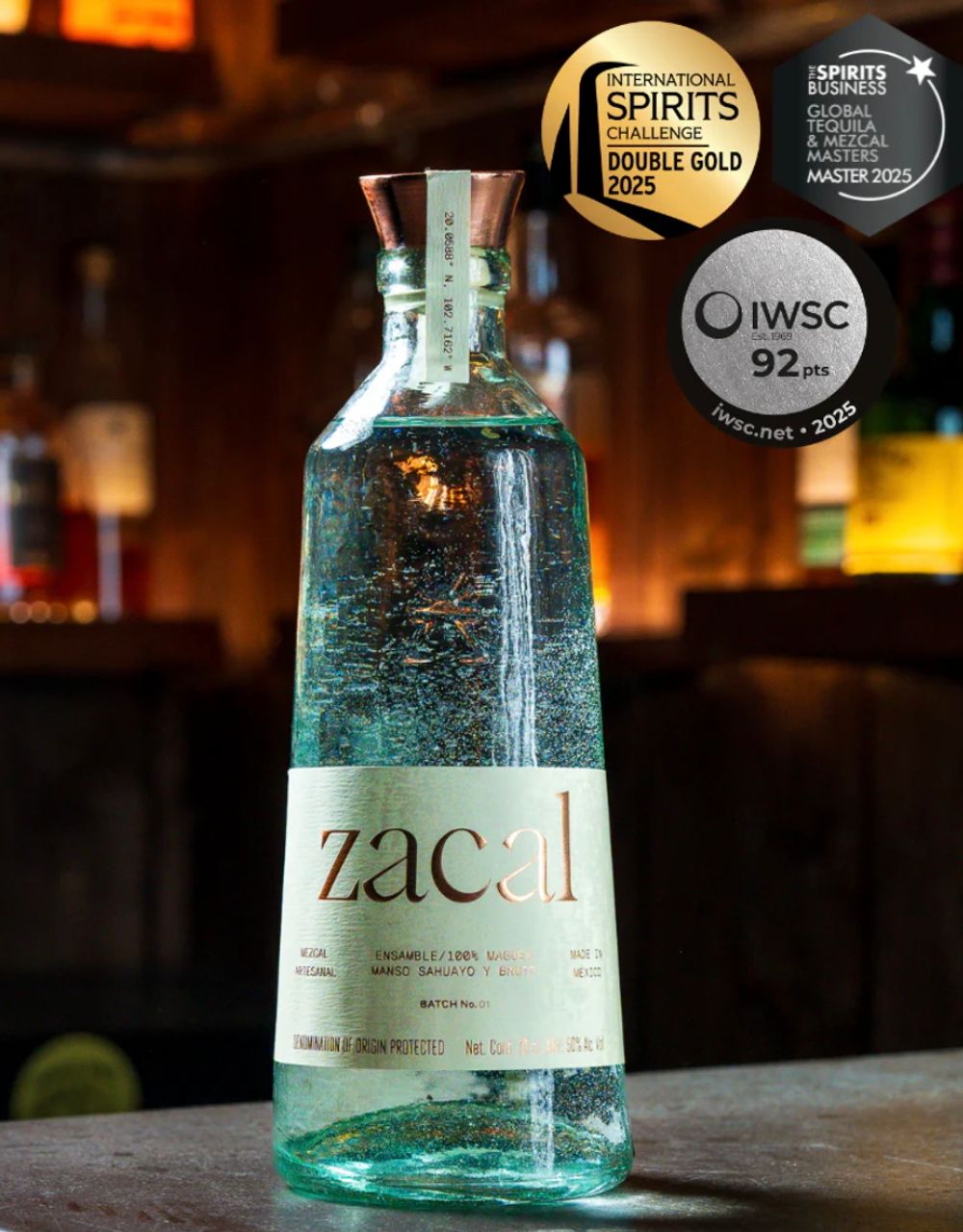
Both Zacal products have won multiple awards in the major spirits competitions for their first releases
It has also meant working on the mezcal itself to make sure it has the complexity and body and finish you expect from a premium spirit, but a mezcal that was more “accessible and not quite so aggressive in its flavour profile”.
That patience paid off in spades earlier in the year when they put the first releases of Zacal - Ensamble - Manso Sahuayo y Bruto and Manso Sahuayo - into the International Spirits Challenge as a benchmarking exercise to see just how far they had got with the liquid.
To their amazement and delight both brands were awarded double golds in the ISC and theyreceived Masters Medals by The Spirits Business in its Global Tequila & Mezcal Masters.
It has certainly rubber stamped their entry into the market, says Clayton. “If you start looking around at who’s winning all the awards and it’s all the old hats. We’re really the only new dog at the show that have been winning awards, and winning awards above the more established brands.”
“It’s very hard to do well in all these awards,” stresses Maidment. “It’s a massive boost of confidence and given us the backing to go out and speak with authority. It’s also extremely hard to stand out without that validation.”
Clayton says they were half confident they were on the right tracks when one of their advisors andinvestors, Ferdi Ahmed, who started the Barrio group of bars, tasted it and immediately asked what they had done to it?
“We said nothing. It’s just not like anything you’ve ever tried before. It’s from a place you’ve never been to and made from plants you’ve never tried. The mezalero does things differently because he does not follow the Oaxaca way of doing things,” he explains.
The foundations are now very much built for Zacal to kick on from its awards success and release of its first batch of products. It now wants to build slowly from an initial 600 bottles each of its two releases, to a target of around 1,500 bottles a month of its Manso Sahuayo brand and up to 5,600 bottles a month of the Ensemble.
Route to market
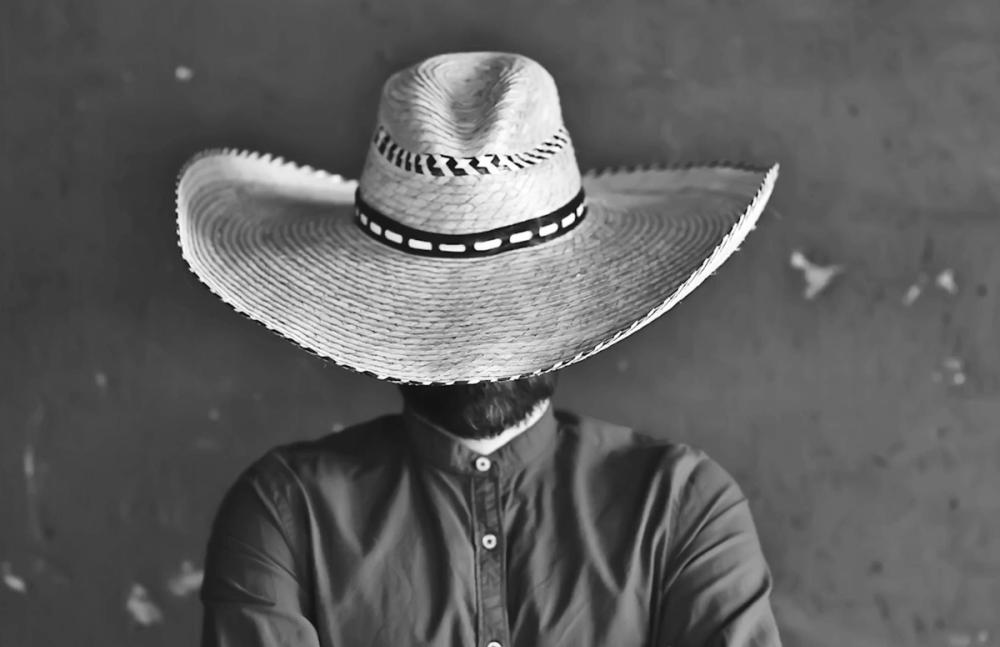
Zacal wants to create a lifestyle image around the brand that reflects its tagline - the spirit less ordinary
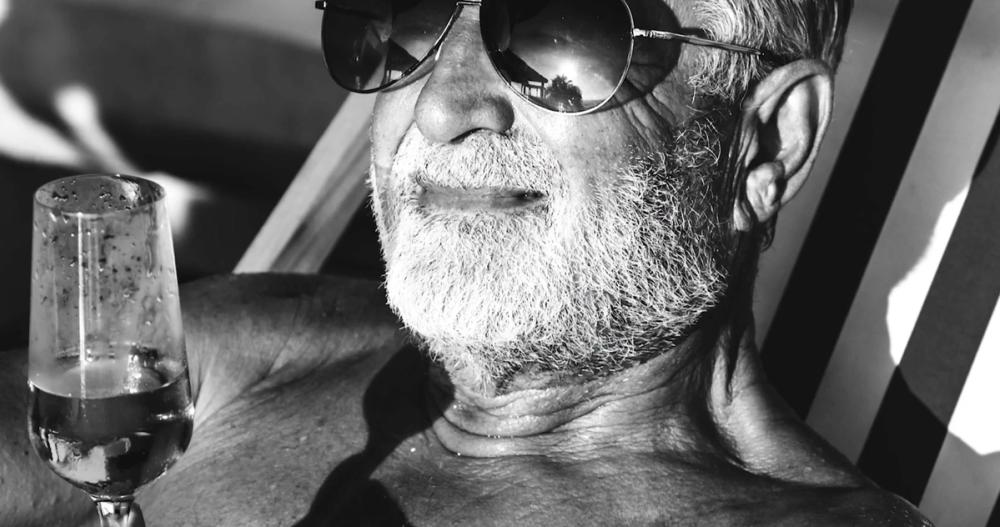

Part of that process is finding the right distributor and route to market, which includes having all the right wholesaler accreditations and being registered with AWRS (Alcohol Wholesaler Registration Scheme). It’s already had great success selling the majority of its first batch of products directly through its own website and is also looking to build relationships with the key spirits distributors - and is already working with Master of Malt, The Drinks Club and Hedonism Wines and Enotria&Coe.
“As time goes we’ll want to maintain the DTC focus as it’s really important for the brand for us to be able to develop an interesting customer experience for people that goes beyond what you might get in a bar,” says Clayton.
It is also working on its marketing campaign and wants to build on the lifestyle and bar imagery it has developed on its website and through its social media and most definitely get away from the stereotypical mezcal imagery you see of “old crusty men with big moustaches and fedoras,” says Clayton.
In particular they really want to dive into their strapline “the spirit less ordinary” and profile and highlight individuals who have done extraordinary and less ordinary things in their lives.
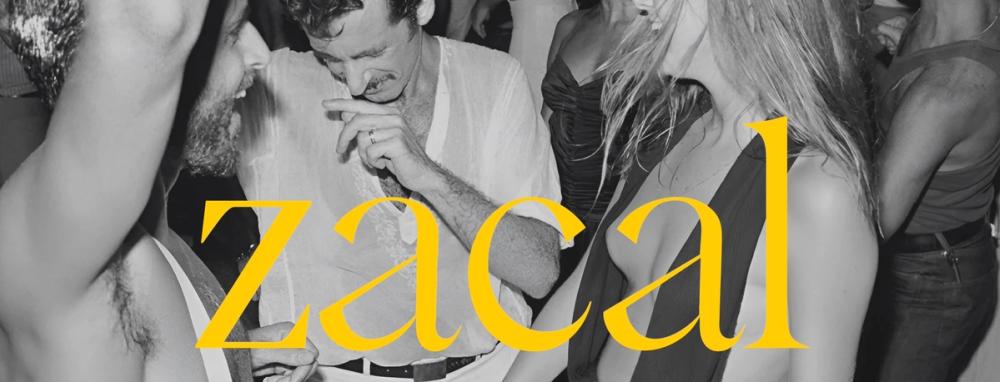
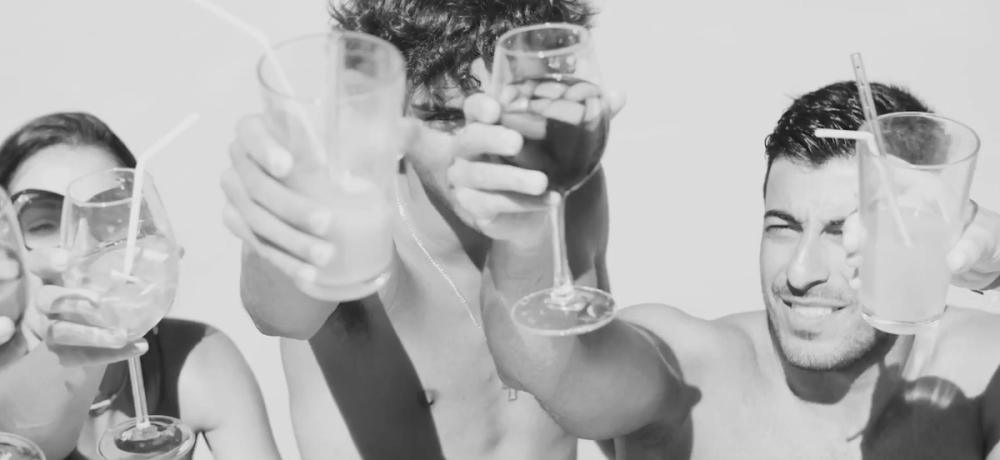
“People who have taken the other path in life and been successful,” says Maidment. “What does being less ordinary mean to you? Not us talking about our products, but the concept in general.”
As for their long term ambitions for the brand they understandably don’t want to get too far in front of their next few batches of mezcal and where they are going to sell them. But clearly they have growth ambitions - up to a point.
They certainly don’t want to build volumes to a point where it can no longer be made by Milton Ochoa in Michoacán - that would mean relinquishing what the brand is all about, stresses Clayton.
“There’s no way in hell that is happening,” stresses Clayton.
* You can find out more about Zacal at its website here.






























